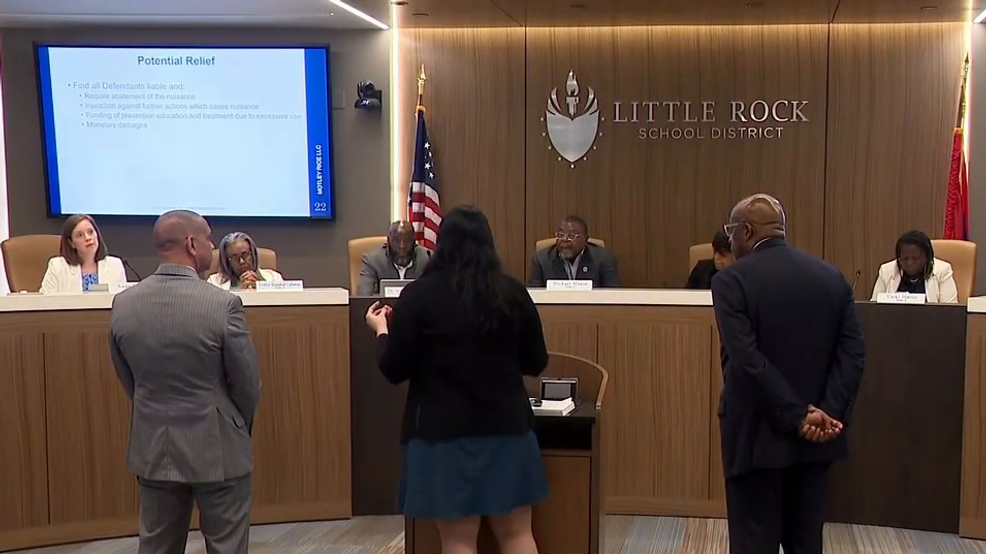
LITTLE ROCK (KATV) — The Little Rock School District held a special board meeting Thursday to consider joining multi-district litigation against major social media companies Meta, Google, TikTok, and Snapchat.
The consolidated lawsuits aim to hold those companies liable for creating a youth mental health crisis.
Cases on behalf of school districts are being brought under a ‘theory of public nuisance,’ in the same vein as cases against e-cigarette company Juul and makers of controversial opioids.
The multidistrict litigation against social media companies has already grown to include roughly 1,000 cases, including not only school district cases but local government entities and personal injuries as well.
“We all know that social media has an enormous impact on our society at whole and on our children as well. There are studies that talk about the impact of social media on mental health, suicide, addiction, all types of things,” said LRSD Superintendent Jermall Wright.
Attorneys from law firms Motley Rice, one of the nation’s largest plaintiff’s litigation firms, as well as the Little Rock Buchanan Firm, together attempted to persuade the Little Rock School District’s board to join their litigation against social media giants including Facebook and Instagram.
“We are here today to ask you to retain our firm so that we can start working up your case on your behalf,” Motley Rice attorney Marlon Kimpson told the LRSD board.
According to the Buchanan Law Firm, the goal of the litigation beyond monetary damages is to force social media companies to change their dangerous practices going forward…those practices said to be intentionally addictive design features, algorithms, and marketing targeted towards youths.
Motley Rice attorneys presented recent statistics from the U.S. Surgeon General that highlighted the negative effects of social media on youth mental health. They eventually offered a streamlined short complaint form for the school district to join the litigation.
If Little Rock School District chooses to participate, attorneys would conduct interviews in the district to discern what negative impact social media may have had on Little Rock students and by extension the district and determine if they have a case.
Some Little Rock School Board members expressed approval.
“I’m going to support this because I do think we need to do our own research and have discussions,” said LRSD board member Norma Johnson, representing Zone 7.
And others, reluctant or unequivocally opposed.
“I already know how I’m going to vote on this. I just think that we have more pressing things and it reminds me of the rap when they were bulldozing over CDs,” said Vicki Hatter, board member for Zone 6.
The school board ultimately voted in favor of tabling the discussion until a later date.
“So, when it was brought to us, this proposal for our district to possibly consider joining this particular lawsuit—that’s not a decision that I can make,” Wright said, “So, my duty was to bring this to our board for discussion this evening and we’ll see where it leads.”
Some parents event took the chance to weigh in on the social media lawsuit and its impact on kids.
Tiara Hatchett said this about the use of social media on children. “They’re making it seem like if you don’t have this then you’re below everybody which puts a mental strain on kids and makes them think that ‘Oh, I’m not popular or I’m not this or that’… Which leads to the suicide… the mental illness, the things like that. So I agree.”
“We wake up and get on social media. We sleep and think about social media so yeah it can be addictive.” A Little Rock School District parent Jasmine Wiggins agrees with the lawsuit. “I think it’s a good idea because you never know what you’re causing the kids once you do that dealing with social media.”
In April, Fayetteville Public Schools was the first Arkansas school district to join that multidistrict litigation.
This post was originally published on this site be sure to check out more of their content







